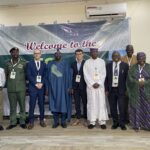Stakeholders validate northern project studies on poverty reduction
By Felicia Imohimi Stakeholders have validated the Federal Government, International Fund for Agricultural Development (IFAD), and French Development Agency (AFD) Value Chain in Northern Nigeria (VCN) programme’s complementary studies. The programme aims to contribute sustainably to poverty reduction, improved nutrition, and greater resilience among rural and vulnerable populations in northernContinue Reading













